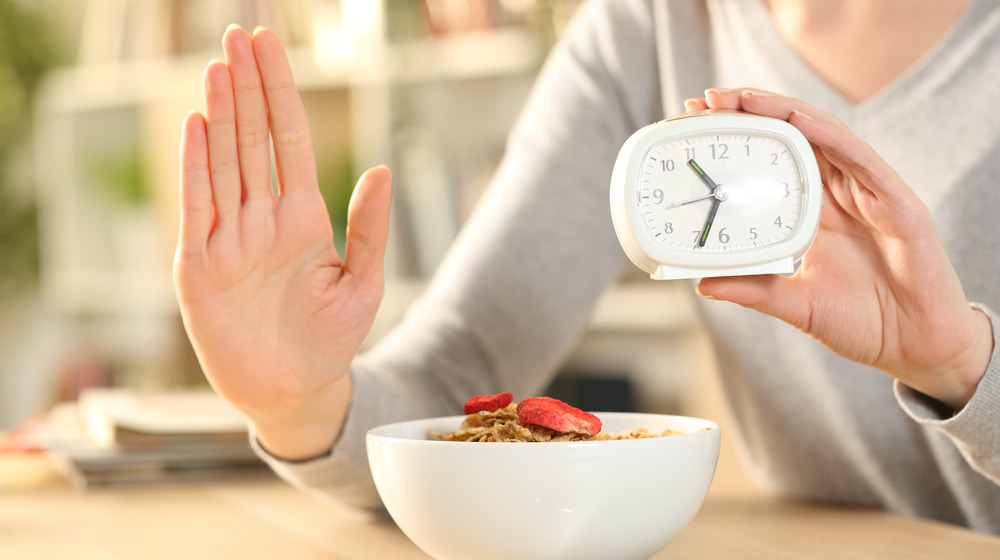Here's What Circadian Rhythm Fasting Really Is
You might have heard about intermittent fasting, where you fast a specific number of hours each day, eating all your meals and food in the remaining hours (via Healthline). Some people swear by it, but others, like fitness expert Jillian Michaels, offer words of caution when trying out a 16:8, 20:4, or even a 5:2 fasting diet plan. You might not realize it, but intermittent fasting aligns with the "circadian" health concept (via Well+Good).
"The natural cycle of physical, mental, and behavior changes that the body goes through in a 24-hour cycle" is the circadian rhythm by which your body operates (via the National Cancer Institute). Steven W. Lockley, PhD, associate professor of medicine at Harvard Medical School and a neuroscientist at Brigham and Women's Hospital, explained that your body has a master clock, made up of tens of thousands of cells that control your circadian rhythm (via Well+Good). The area responds to light by releasing hormones like cortisol to wake you up, and it releases melatonin when it's dark to help you feel sleepy. In addition to light, food also happens to affect your body's circadian rhythm.
Here's how to reap the benefits of the circadian diet
Allowing your natural circadian cycle to guide your eating habits could result in better sleep (via Byrdie). "To put it simply, the circadian diet or the 'body clock diet' is a time-restricted way of eating working in sync with your body's internal body clock," Jessica Shand, Naturopathic Nutrition Coach and Founder of eatnourishandglow.com told Byrdie. Shand recommends eating larger meals earlier in the day, while saving lighter foods for later. As for what to eat, lean protein, healthy fats, and colorful fruits and vegetables that are high in fiber remain healthy choices. Good hydration and cutting back on or cutting out beverages with caffeine also helps.
Ultimately, circadian fasting is a form of intermittent fasting. Well+Good cautions that research into intermittent fasting and the body's circadian rhythm are in the early phases, so it's unclear how you can get the best possible benefits from it. "It's not about restricting. It's about getting back to a more natural cycle where we don't eat at night," said Dr. Steven Lockley. It's possible you may reap the benefits of eating according to your circadian rhythm by not eating within two to three hours of your bedtime, and you don't have to eat according to a specific fasting plan.
No matter what type of eating plan you decide on, you should probably talk with your doctor to ensure that it's a good fit for you, especially if it represents a dramatic change.

